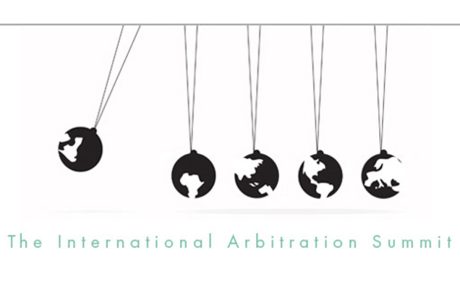The second International Arbitration Summit, hosted by Legal Business and co-sponsored by Stewarts, brought together lawyers, arbitrators, clients and financial experts from across the world.
The agenda focused on current and anticipated developments and concerns within the arbitration community at a time described by Alex Novarese, Editor-in chief of Legal Business, when “pressure to commoditise the process and push down fees on all but high-values disputes is now gripping the market”.
The opening keynote was delivered by Sir Frank Berman QC (Essex Court Chambers) and other noteable panellists included Sir Bernard Eder (Essex Court Chambers), Professor Loukas Mistelis (Queen Mary University of London), Klaus Reichert SC (Brick Court Chambers), Nigel Jones QC (Hardwicke Chambers) and Duncan Matthews QC (20 Essex Street).
Philippa Charles, Partner and Head of the Arbitration team at Stewarts, chaired a panel on “the looming commodification of arbitration”. She led a discussion on innovative tools that are available to deal with the complexities of disputes involving a significant volume of disclosure.
The panel noted a seemingly inevitable trend towards the use of specialised disclosure software in proceedings involving a significant volume of documentation or disclosure.
It was felt that it may become impossible to avoid utilising technical assistance given that several tests have demonstrated that mechanised document review may, depending on the content of the documentation to be reviewed, be more effective and cost efficient than lawyers.
However, close supervision by lawyers remains essential as in some instances, particularly where allegations of fraud are involved, software may be unable to detect code words or attach adequate significance to apparently innocuous language.
The panel also considered the challenges and pressures that increasingly apply in relation to the legal costs of pursuing arbitration. The discussion focused on new challenges created by smaller arbitration cases.
The International Chamber of Commerce (ICC) has acted responsively with regard to such challenges. In November 2016, it launched a new Expedited Procedure Rules for “smaller” claims with a value that do not exceed US$ 2m.
The move illustrates the increase in lower value disputes, for which the cost of instructing legal advisors may otherwise be disproportionately high.
Many firms are facing pressure on fees caused, in part, by lower value claims coming to the market and a willingness of firms to ‘undercut’ rivals. It was noted that firms must strive to balance the complexity and value of a case with the hourly rate of solicitors involved.
Other panel discussions at the event considered further key issues affecting the practice of international arbitration worldwide, including:
- Brexit, the unavoidable topic of the year, also had its own panel. This discussed the effect of Brexit on topics such as the application of Brussels I recast, the arbitrability of anti-suit injunctions, and London’s attractiveness as an arbitration seat. The conclusion was that Brexit may serve to strengthen London’s attractiveness as an arbitral seat.
- Is Paris still an important seat for arbitration? The answers given considered various elements, from the pro-arbitration legal system to the quality of French cuisine.
- Is there an “arbitration mafia” among Parisian law firms? The panel and the floor seemed to think this was not the case.
- Singapore’s rise as a seat of arbitration was considered and it was noted that although India may challenge Singapore’s position as a seat in the future, this may take some time.
- Instances of corruption cases may be at risk of increasing if Tribunals do not take a proactive role in investigating potentially corrupt behaviours. It was accepted though that issues relating to corruption are not usually covered by the arbitration agreement. Arbitrators may, therefore, lack jurisdiction to tackle those issues.
- In the energy arbitration market, the fall of energy prices and the increasing price of legal disputes is pushing clients to request low cost legal solutions. With the success of the FIDIC rules, clients now show a greater interest for DAB equivalent structures to resolve their disputes, without having to go all the way to arbitration. Could that be the future of dispute resolution in the oil and gas market?
The second edition of the International Arbitration Summit was hosted by Legal Business at The Brewery, London, on 17 November 2016. For further information on this year’s summit click here.
You can find further information regarding our expertise, experience and team on our International Arbitration pages.
If you require assistance from our team, please contact us or request a call back from one of our lawyers by submitting this form.
Media contact: Lydia Buckingham, Senior Marketing Executive, +44 (0) 20 7822 8134, lbuckingham@stewartslaw.com

